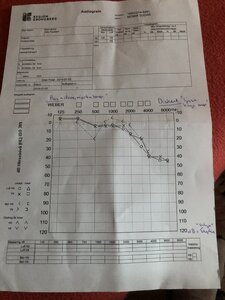Okay, but if clinically we find hearing and tinnitus improves does it matter if it's pretty?
In addition to what Pipeline told me when I asked that exact question and they said the regenerated outer hair cells (their drug only does outer and synapses) were phenotypically normal and were orientated correctly in the cochlea, we know hearing improved in FX-322 and it seems heavily implied that tinnitus did too imo so we can deduce that these details are perhaps not clinically meaningful.
The problem when you say "we should explore that", you mean "we should swap research papers" but we actually have clinical data starting to come out as to what this means functionally and in humans. I think clinical data >>>>>>> theoretical data.
Also images taken acutely may have zero to do with how tissue looks after inflammation subsides. Almost *all* these studies are acute. Let's look at clinical data of the drugs in trial to draw from instead.
Edit: sorry if I sound rude, I am just frustrated. We have actual phase 1 data with great results and it seems like people keep trying to find obscure papers detailing why things that are being shown to work already won't work. I shouldn't have directed that at you personally,
@brokensoul, I think you have some great ideas.

 Member
Member